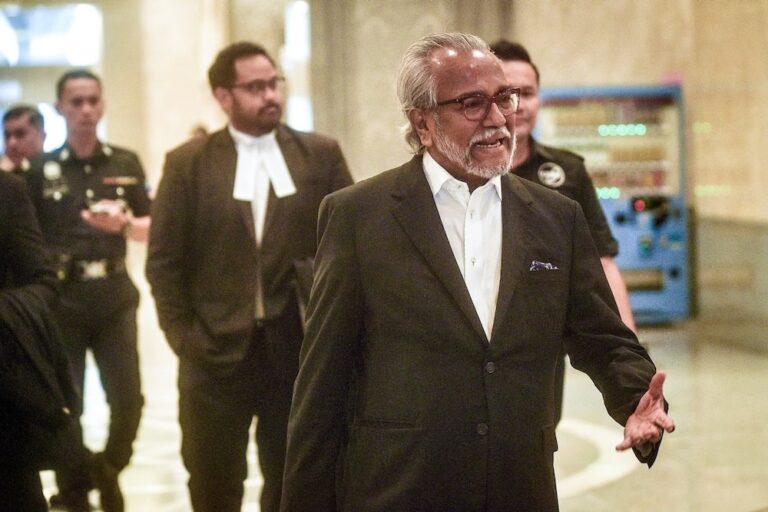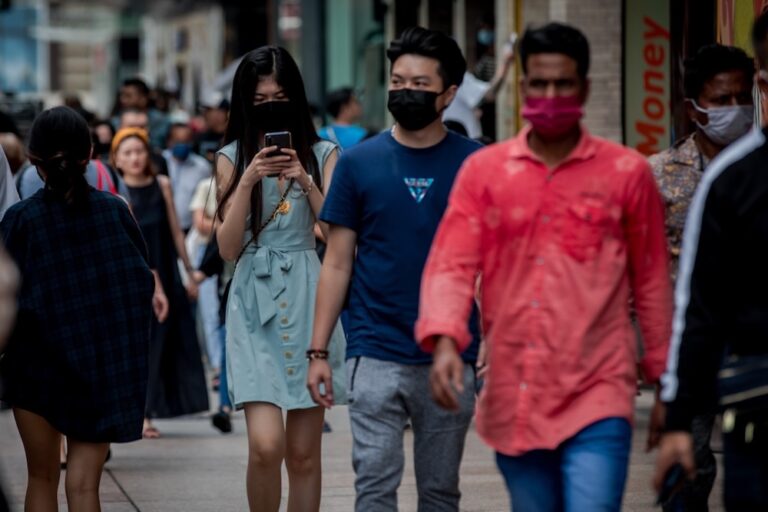(SEAPA/IFEX) – On 11 December 2007, Malaysian police arrested 26 people, including a teenager, who were part of a civil society delegation sent to Parliament to object to the rushed manner of a proposed constitutional amendment to extend the tenure of the Election Commission chair. The Coalition for Clean and Fair Elections (BERSIH), which is […]
(SEAPA/IFEX) – On 11 December 2007, Malaysian police arrested 26 people, including a teenager, who were part of a civil society delegation sent to Parliament to object to the rushed manner of a proposed constitutional amendment to extend the tenure of the Election Commission chair.
The Coalition for Clean and Fair Elections (BERSIH), which is composed of 67 non-governmental groups and opposition parties, had made known their intention to formally present a memorandum to the House, stating their objections. On 10 December, citing security concerns, the police obtained a court order prohibiting BERSIH from entering the Parliament premises.
On 11 December, from as early as 8:30 a.m. (local time), police mounted roadblocks across the capital and in front of the Parliament building. They started arresting people shortly after 10.00 a.m. when a few BERSIH leaders unsuccessfully tried to go past the Parliament roadblock. A few who managed to sneak past the police and presented the memorandum to opposition Members of Parliament were arrested on their way out.
All arrested were taken to the Police Contingent Headquarters in the capital for questioning before being released in two batches at 4:00 p.m. and 10:00 p.m. Among them were Gayathry Venkiteswaran, Centre for Independent Journalism (CIJ) executive director; Wong Chin Huat, chair of the Writers Alliance for Media Independence (WAMI); Yap Swee Seng, the executive director of human rights group SUARAM; Mien Lor, programme officer of Community Communications Centre of Malaysia (KOMAS); Khalid Ibrahim, People’s Justice Party (PKR) secretary general; Dr. Dzulkifli Ahmad of Pan-Malaysian Islamic Party (PAS); Dr. Hatta Ramli, PAS treasurer; Nuridah Mohd. Salleh, PAS Women’s chief; Dr. Lo “Lo” Ghazali, PAS central committee member; Tian Chua, PKR information chief; Dr. Mohd. Nasir Hashim, Malaysian Socialist Party (PSM) pro-tem president; S. Arutchelvan, pro-tem PSM secretary-general; and S. Sivarajan, PSM pro-tem central committee member. Seventeen of them are out on police bail and will have to present themselves at the Kuala Lumpur Magistrates’ Court on 18 December.
SEAPA is extremely disappointed with the government of Abdullah Ahmad Badawi for preventing citizens from meeting their elected representatives at the august house to convey their views about an important amendment to the Constitution that was scheduled for final reading that day. The group’s mission is surely a fundamental democratic right allowed in any functioning democracy.
In a speech the prime minister gave at a global lecture in the administrative capital Putrajaya on 10 December, he asked Malaysians to think of “what the country should be”. Yet the very next day,
Abdullah allowed the police to stop 67 groups, who represent the aspiration for a true democracy through free and fair elections, from doing just what he has asked, at the highest legislative assembly, no less.
The latest arrests mark a worrying trend of increasing official intolerance as Malaysians are starting to invoke their seldom-exercised right to freedom of assembly as a means of expressing their grievances, which is not being conveyed by the mainstream media. The Malaysian mainstream media are forced to toe the official line as they are gagged by restrictive laws and a licensing regime established to ostensibly preserve harmony in the multi-ethnic, multi-religious nation. Frustrated at the lack of democratic space in general, civil society groups are taking to the streets despite police warnings, a spate of arrests, encounters with riot police brutality and even threats to use the draconian Internal Security Act which allows for detention without trial.


